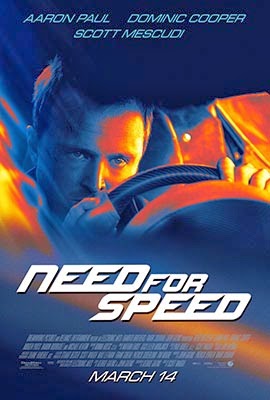Technical Assessment: 3
Moral Assessment: 2
CINEMA Rating: V18
After witnessing
General Themistocles (Sullivan Stapleton) of Greece murder his father, King
Darius, Xerxes (Rodrigo Santoro) through the malicious prodding of his adoptive
sister Artemisia (Eva Green) journeys through the desert and becomes
transformed as a golden God-King. Xerxes returns to Persia and declares war on
Greece with Artemisia leading the naval fleet. Artemisia’s reasons for fighting for Persia despite being
Greek are self-serving. Apparently, her family was raped and murdered by Greek
hoplites when she was a young girl while herself made into a sex slave before
being left for dead. Fortunately, she was rescued and trained by the Persians
until King Darius, recognizing her sword fighting skills, promoted her as naval
commander. Meanwhile, Themistocles gathers his Spartan fighters and delivers
his most soulful speeches to unite the Athenians to fight for Greece. Lena Heady (who provides a voice over narrative) plays Leonidas' wife who advocates the superiority of Sparta and in time leads her fleet to the action.
300: Rise of an Empire reeks with male testosterone as
it narrates events before, during and after the 2007 film 300 and deliberately fills the screen with blood and body parts at
every opportunity. Sans the waves of blood every 10 seconds, the movie is a
visual feast with ambitious computer-generated effects blended evenly with live
action footages. The cast was authentically graphic and caricature-like with
lust for violence, aggression and more blood. The scoring is suitable and paces
the movie well. The narrative is complicated as it tries hard to hold on to
history and recreate imaginary characters in events leading to the Battle of
Salamis but again with all the blood so pointlessly gushing, splattering and
spurting here and there, one’s senses are numb before they can try to
comprehend the gist of the story. But is it any good? Depends on one’s
preference for gore over a solid and creative story telling. Needless to say,
the movie will only be remembered for the amount of carnage on screen.
While people suffer
injustice and abuse—sadly from people they trust and rely on—they also experience
healing and love, surprisingly from strangers. Artemisia learned both—betrayal
from her countrymen and care from the enemy country. She could have taken the
higher road and practised forgiveness for her abusers and gratitude for her
rescuers but instead she let vengeance consume her soul and turn her into a
monster. Christ did otherwise. He forgave those who hurt Him. So did most of
our Church heroes and heroines who embraced those who persecuted them and
returned love and forgiveness for every violent action received.
And at the end, the fruit is peace and reconciliation. Something Artemisia
never experienced but unwittingly longed for. She had everything laid down at
her feet yet she was never complete and never happy. The movie showed glimpses
of the ill-effects of harboring revenge but did so in the most brutal and
graphic manner. Technically and
visually 300: Rise of an Empire is
an artistic, well-crafted film, but the carnage and the amount of blood shed in
so many scenes deduct from the film’s aesthetic value, and overshadows whatever
morals the story could have portrayed.









